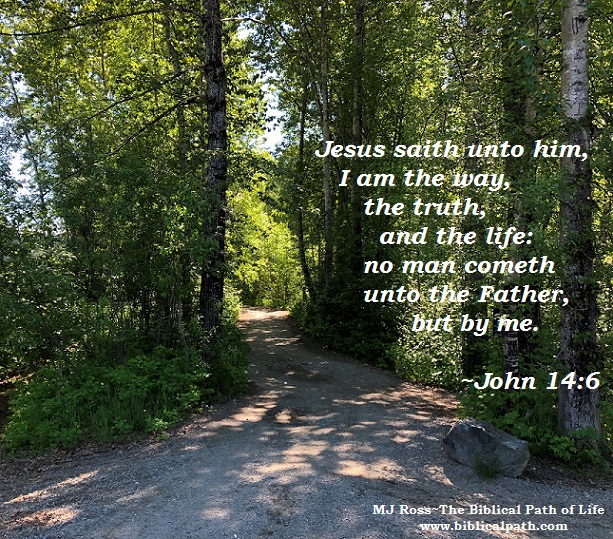
“For the Father judgeth no man, but hath committed all judgment unto the Son”
John 5:22
No one wants to be judged. Often, people declare, “Judge not lest ye be judged!” However, it doesn’t really matter whether one wants to be judged or not. There is a judgment day coming. Deep down, people really believe this, too. Even movies have been named with this thought in mind. How many can you think of?
We must be reminded of some of the things Jesus said about judgment: “22. For the Father judgeth no man, but hath committed all judgment unto the Son: 23. That all men should honour the Son, even as they honour the Father. He that honoureth not the Son honoureth not the Father which hath sent him.” (John 5:22-23). God has committed judgment unto His Son, Jesus. “I can of mine own self do nothing: as I hear, I judge: and my judgment is just; because I seek not mine own will, but the will of the Father which hath sent me” (John 5:30). Jesus’ judgment is just because He does the will of His Father, God.
However, understand why Jesus came; not to judge, but to give life. “46. I am come a light into the world, that whosoever believeth on me should not abide in darkness. 47. And if any man hear my words, and believe not, I judge him not: for I came not to judge the world, but to save the world” (John 12:46-47). When Jesus first came, it was not to judge but to offer life. This brings to mind a couple of very famous verses: “16. For God so loved the world, that he gave his only begotten Son, that whosoever believeth in him should not perish, but have everlasting life. 17. For God sent not his Son into the world to condemn the world; but that the world through him might be saved” (John 3:16-17). Jesus came the first time to bring salvation that is only available through His perfect life and atoning death. Read how this is explained in the following couple of verses: “For he (God) hath made him (Jesus)to be sin for us, who knew no sin; that we might be made the righteousness of God in him” (2 Corinthians 5:21). (Emphasis added.) See also: “And be found in him (Jesus Christ), not having mine own righteousness, which is of the law, but that which is through the faith of Christ, the righteousness which is of God by faith” (Philippians 3:9). (Emphasis added.) One must hear the message, acknowledge what Jesus did, believe, and live a transformed life for Him. “Therefore if any man be in Christ, he is a new creature: old things are passed away; behold, all things are become new” (2 Corinthians 5:17).
Read why Jesus came: “And he (Jesus) said unto them, Let us go into the next towns, that I may preach there also: for therefore came I forth” (Mark 1:38). (Emphasis added.) See also: “For the Son of man is come to seek and to save that which was lost” (Luke 19:10). When Jesus came, He did mighty miracles. “36. While ye have light, believe in the light, that ye may be the children of light. These things spake Jesus, and departed, and did hide himself from them. 37. But though he had done so many miracles before them, yet they believed not on him” (John 12:36-37). When Jesus came preaching and doing many miracles, there were still many who did not believe on Him.
Now that salvation has been paid for and offered to all the world, a choice must be made by each individual. One must remember that judgment is not immediate. One is welcome to live his or her life here on this earth, whichever way that one chooses. What will happen to those who do not receive the message that Jesus preached? “48. He that rejecteth me (Jesus), and receiveth not my words (Jesus’ Words), hath one that judgeth him: the word that I have spoken, the same shall judge him in the last day. 49. For I have not spoken of myself; but the Father which sent me, he gave me a commandment, what I should say, and what I should speak” (John 12:48-49). (Emphasis added.) The Words Jesus spoke are the Words by which all will be judged. These are recorded in the Bible for us to know. The ultimate and final judgment will come when each person will stand before Jesus one day. (Those who received Jesus’ Words: see 2 Corinthians 5:10; and those who rejected Jesus’ Words and chose to not believe: see Revelation 20:11-15).
We understand that God sent His only Son, Jesus, not to condemn the world. He came so that the world could be saved. However, the choice is left up to each individual person – to believe or to not believe. “He that believeth on the Son hath everlasting life: and he that believeth not the Son shall not see life; but the wrath of God abideth on him” (John 3:36).
Anyone who receives Jesus and His Word will have eternal life.
Anyone who receives not Jesus and His Word will be judged according to that one day.
The choice is up to you.
Have you chosen to reject Jesus’ Words and not believe upon Jesus, the only One who can save?
Or
Have you chosen to believe Jesus’ Words and to accept His gift of salvation?
How to accept His gift of Salvation? How to be saved.




